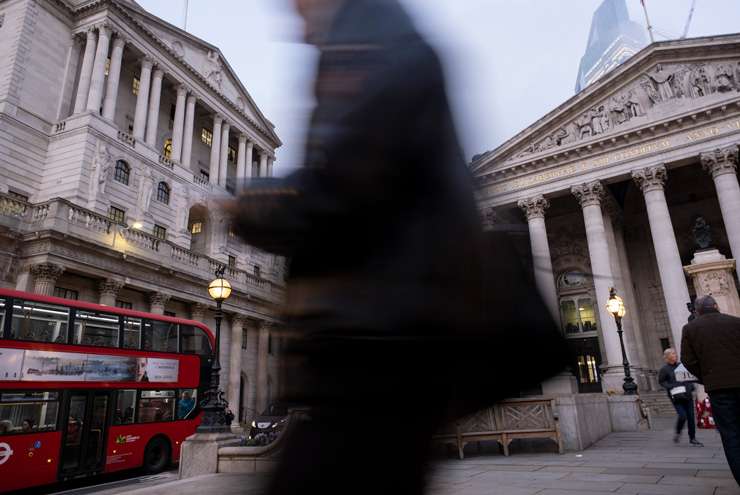In the last 14 months, New Zealand’s official cash rate (OCR) has jumped from an all-time low of 0.25% to a 14-year high of 4.25% - and the Reserve Bank of New Zealand (RBNZ) hasn’t finished yet, with expectations that the OCR will peak above 5%.
The reason for the nine successive OCR hikes by the RBNZ is inflation. Currently sitting at 7.2%, inflation is economic enemy number one, and is well outside the RBNZ’s target range of 1-3%. Increasing the cost of borrowing is the bank’s biggest and most potent weapon against rising inflation, but warnings of a recession and an uptick in unemployment in 2023 are also being used to rein in Kiwi spending.
New Zealand isn’t in the fight against inflation alone, but it is quite a bit ahead of other countries in raising interest rates. In Australia, the Reserve Bank has raised borrowing costs eight times in as many months, with country’s official cash rate sitting at 3.1%, its highest level since 2012, and inflation running at 7.3%. In the UK, where inflation hit 11.1% in October, the Bank of England has raised interest rates to 3.5% while in the US, the Federal Reserve has pushed up interest rates to a targeted range of between 4.25% and 4.5%, against an inflation rate of 7.1%.
Start your property search
But while Australia and the UK maybe trailing in interest rate rises, they are definitely out in front when it comes to homeowners, buyers and renters voicing their displeasure. “Honestly feels like all those dreams of a house and family have gone up in smoke,” posted one first home buyer last month during an intense discussion about the future of UK interest rates. Another chimed in: “It’s gonna be carnage, landlords re-mortgaging are gonna basically have double the mortgages they had. No way are renters gonna be able to afford it.”
In Australia, the social media outcry was just as visceral when the country’s cash rate went to 2.85% in November. “And when you say ‘creating less demand’, you of course mean starving people?” wrote one outraged Aussie. “Forcing us to choose between keeping a roof over our heads, and buying groceries? Depriving people of basic human rights should not be the solution to economic crises…”
Other outburst included: “Costs keep going up, wages keep going down. How long till we can strike”, and “I’m holding out for a riot. I work two jobs and barely scrape by.”
Nick Goodall, head of research at CoreLogic in New Zealand, says around 60% of mortgage holders in Australia are on floating rates. “So [the Reserve Bank of Australia] gets a much more immediate reaction to lifting the cash rate. It slows down their spending faster. Whereas with fixed [mortgages here] it might take a time to work through the system.”

The Bank of England in the UK is fighting an inflation rate of 11%-plus. Photo / Getty Images
On the other hand, the pain being felt in the UK isn’t just over the Bank of England’s base rate. The UK has higher inflation than New Zealand, Australia and the US, but has been through a significant period of political uncertainty in recent months, is closer to the Ukraine war, and is still suffering the fallout from Brexit.
“I think New Zealand’s economy is just genuinely more resilient,” says Mark Lister, director of investments at Craigs Investment Partners. “Maybe it's not perfect, but it's in a lot better shape than many other parts of the world.”
Rising interest rates and a high cost of living are annoying, Lister says, “but if you've still got a job, if you're still getting good wage increases , if businesses are still able to generate solid profits, and your economy's resilient, then take the good with the bad. It's when you've got those higher interest rates and that higher inflation and your economy's in a slump, that's when people start to feel very pressured. We're not quite there yet.”
Lister says one of the other reasons New Zealanders might be more philosophical about rising interest rates is that the RBNZ started raising rates a lot earlier than other central banks. “We stopped our quantitative easing [money printing] earlier than the other countries, and we started increasing the OCR in October last year, which was also a lot earlier,” he says.
“The fact that our Reserve Bank started a lot earlier means we've had a bit more time to normalise it and get our heads around it. Maybe the shock factor has been more significant for those countries than it has for us.”

A sale sign outside a home in Sydney. Most home-owners in Australia are on floating rates. Photo / Getty Images
Independent economist Tony Alexander says every central bank underestimated inflationary pressures in 2021 and not one got their interest rate forecasts right. “All central banks have been too slow in raising interest rates over 2021 into 2022, but our central bank, I believe, was second off the rank to do it.”
Lister says that pundits believe that the cash rate needs to be higher than the inflation rate to get inflation under control. “But that's not a realistic course of action for central banks. If our OCR was above our inflation rate, that would mean we'd have an OCR of 7.5 or 8%. And the cash rate in the UK would have to be 12%.” Mortgage interest rates would need to be higher again. “That would tank those economies overnight,” he says.
“There are other factors that come into it, including where you're expecting inflation to grow to in the future. Inflation is starting to come down in some countries without the OCR needing to be higher than the inflation rate.”
The other reason for the OCRs being lower than inflation is that the central banks are targeting inflation over the medium term, not expecting instantaneous results. “They're trying to make sure that inflation is under control over the next one to three years, rather than where inflation is at today,” says Lister.
In the US, the population is taking rising interest rates in their stride and consumer confidence is still okay, says Lister. “They're not really up in arms. It's not quite as simple as attributing people's unhappiness to what's happened with interest rates.”















































































